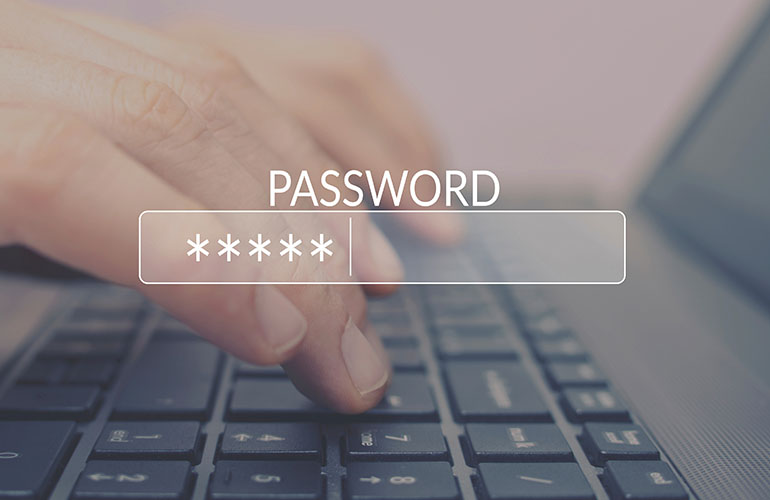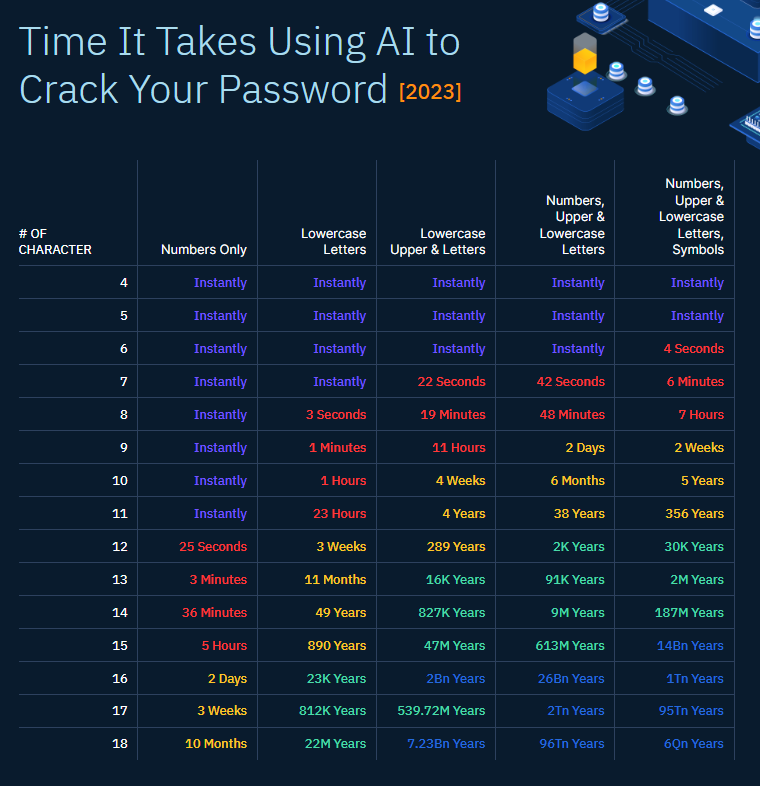
In today’s digital age, password security is more important than ever. A password is the key to our digital lives, securing access to our personal information, financial data, and online accounts. Yet, many people still use weak, easily guessable passwords that make them vulnerable to cyber attacks.
To make matters worse, hackers are constantly developing new methods to crack passwords. One of the latest and most concerning developments in password cracking is the use of AI-powered tools.
AI-powered password cracking tools use machine learning algorithms to analyse large datasets of leaked passwords and identify patterns and common password structures. This allows them to guess passwords much faster and more accurately than traditional brute force methods.
Security experts at Home Security Heroes have released a new report showcasing how an advanced AI tool can crack common passwords within seconds or minutes. They found that the tool was able to crack a concerning percentage of common passwords in record time. Their analysis revealed that 81% of common passwords could be cracked in less than a month, 71% in less than a day, 65% in less than an hour, and 51% in less than a minute.

(Source: Home Security Heroes)
This is a worrying development, but there are steps we can take to protect ourselves. The first and most important step is to use complex passwords that are difficult to guess. A strong password should be at least 12 characters long and include a combination of uppercase and lowercase letters, numbers, and symbols.
However, even the strongest passwords can be compromised if they are used across multiple accounts or if they are stolen in a data breach. This is where two-factor authentication (2FA) comes in.
2FA adds an additional layer of security to your online accounts by requiring a second factor of authentication in addition to your password. This could be a code sent to your phone, a fingerprint scan, or a physical security key.
By using 2FA, even if a hacker manages to crack your password, they will still need the second factor to gain access to your account. This greatly reduces the risk of a successful cyber attack.
In conclusion, the development of AI-powered password cracking tools is a cause for concern, but we can protect ourselves by using strong, complex passwords and enabling 2FA on our online accounts. These simple steps can go a long way in keeping our personal information and online identities safe from cyber criminals. Additionally, exploring innovative solutions like passwordless enterprise methods can offer another layer of security, moving beyond traditional password-based systems and reducing the vulnerability to such attacks.
Empowering London Businesses with Efficient IT Solutions to Save Time and Stay Ahead of the Competition.